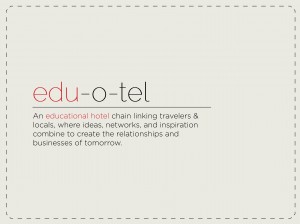What advice would you give a soon-to-be graduate?
Last week I got this note below from a college senior looking to explore development work, and wondering what the best and most responsible way to do that would be.
I wrote him back some thoughts, and asked him if it would be ok if I shared this with LessonsILearned readers to see what advice other people might give. He said ok, so here goes!
I’ll post a comment with the response I sent him next week, but in the meantime, I’d love to read YOUR thoughts! What advice would you give a soon-to-be graduate? What books would you recommend, etc? Hopefully this can help Bill (name changed) and others!
Thanks, Bill for such a thoughtful email and for making your impact decisions so careful! I am looking forward to reading what the rest of you advise!
—
Hi Daniela,
I hope all is well.
I know you must be very busy so I will try and make this quick.
My name is Bill Smith and I am going to be a senior at in college in California. As I enter into my final year of undergraduate study and begin the search for a job or post-college scholarship I was hoping to gain some of your insight.
At this point let me first explain why I am asking you specifically….
Over a year ago my university sponsored me to “intern” (ok volunteer) at a local education NGO in Siem Reap. Before traveling to Siem Reap I was really excited to travel abroad, help those in need…mostly things of a personal benefit. I held these views until I began to research a bit deeper into the troubles of current volunteer practices.
After reading a few articles and watching two Al Jazeera specials on voluntourism and orphanage tourism, I began to really question my decision to volunteer in Siem Reap. I contemplated canceling my internship in order to avoid contributing to the negative aspects of volunteering/development work…etc
Since I already booked my plane tickets, I decided to pursue volunteering in SR but with the intention of entering the process as an educational experience. More specifically, I treated my experience as if it was a course focusing on the issues surrounding international development organizations operating in Cambodia.
This is when you come into the picture.
During the week I worked as a before/after school tutor, however I made sure to spend some of my free time and several weekends meeting trying to learn more about both the good and bad practices occurring in Siem Reap and other areas of Cambodia. I gathered information from three main sources: through meeting with and researching other NGOs, by living in a guesthouse where the owners ran their own education NGO and through online scholarly journals or blogs such as your Lessons I learned. In fact I actually met with two people from PEPY and they helped share some very insightful information about some of the work and philosophies of your organization. I believe I was there a week or two after you decided to leave to pursue further studies.
Which brings me to the present time.
As I enter my final year of undergraduate education, I feel a little lost in terms of furthering my understanding of the development practices and changes needed to make it more effective. I have stumbled across provocative pieces such as an old speech from Ivan Illich (http://www.swaraj.org/illich_
After watching and reading your most recent blog posts I felt motivated to finally contact you. For some reason the “learning” before “serving” talk really resonated with my experience from last summer.
I think what I am trying to ask is: what are some paths or experiences I should pursue that would develop my knowledge and skills in order to more effectively help social change in the future?
I know this is a very broad topic that will require a multi-faceted approach and experts across almost every field of study. In an attempt to try being more specific: I am interested in understanding more about the relationship between politics, economics, culture and the causes of current “problems”. In addition to understanding more about the causes of current problems, I am interested in learning more about the role/strategies both individual development organizations and groups of organizations have in finding solutions to these problems.
Are there certain books/articles, fields of study (economics? Psychology? Etc.) I should read? Hands on experience? Applying for Fulbright versus applying for other jobs that would provide great business and management practice such as consulting, teaching? Basically anything where I could develop a higher level skill? Follow something I’m passionate about?
Thank you for taking the time to read at least a part of this rant. I apologize I didn’t keep it as short as intended. Whether or not you respond, I just wanted to thank you for sharing your thoughts on your blog. I really think you are sharing amazing thoughts, and a lot of people can and will learn from your ideas and the discussions you raise.
Thanks again and keep up the fantastic work!
Bill Smith
P.S. I would appreciate the opportunity to get involved in the Educational Hotel! I think that is a fantastic concept. I recently spent the summer in Thailand through another scholarship and two weeks traveling in Burma, while there I really saw the need/niche for affordable and informational education hostels/hotels.




